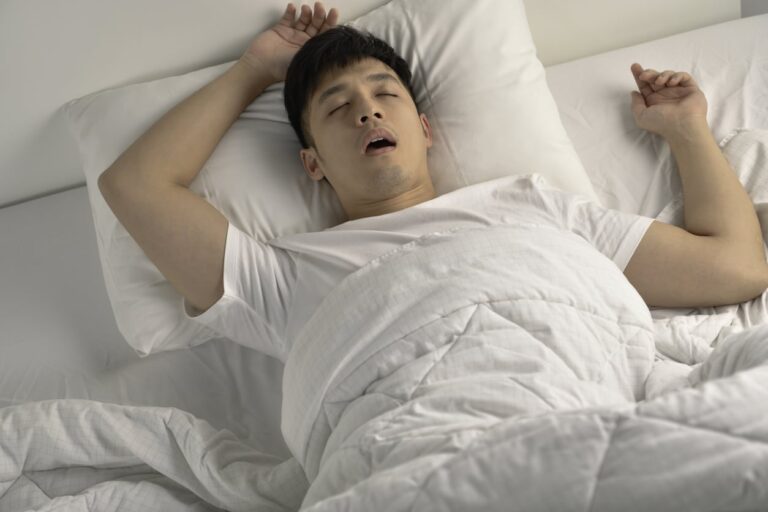When you think of common causes of hearing loss, the first ones to come to mind are probably loud noise exposure and aging. A lesser-known potential cause of hearing loss is sleep apnea. Sleep apnea is a partial or complete collapse of the upper airway during sleep. Symptoms may include but are not limited to:
- Loud or excessive snoring
- Decrease in oxygen
- Sleep disturbance
- Excessive daytime sleepiness
- Decreased blood flow
Let’s discuss why sleep apnea may be affecting your hearing.
How Does Sleep Apnea Impact Hearing?

A study on the association between sleep apnea and hearing loss analyzed the pure-tone thresholds and speech discrimination scores of 120 patients with sleep apnea. The results suggested that moderate sleep apnea affected high-frequency hearing and severe cases negatively affected all hearing functions.
One potential cause of this correlation is the lower oxygen levels in the blood from sleep apnea. Hypoxia (a state where oxygen levels are not sufficient) has been found to cause long-term decline in hearing thresholds and impaired auditory response.
How Can Sleep Apnea Be Improved?
There are several treatment options available for sleep apnea, including but not limited to the following:
- Continuous positive airway pressure (CPAP). CPAP machines are placed over the nose while you sleep. The increased air pressure inside the mask helps keep the airways open while sleeping to promote better breathing.
- Tissue Surgery. Surgical options are usually recommended if other treatments have failed. Tissue surgery involves removing or shrinking selected tissues to help prevent the airway from collapsing.
- Jaw repositioning. In a jaw repositioning surgery, the jaw is moved forward away from the face bones. This is done to enlarge the space behind the tongue and soft palate to reduce the likelihood of airway obstruction.
Treating your sleep apnea will help prevent the development of hypoxia-induced hearing loss. An ear, nose and throat specialist (ENT) can help you determine which treatment option is right for you based on the severity and cause of your sleep apnea.
If sleep apnea is affecting your hearing or causing exhaustion preventing you from enjoying dinner with your family or walks at Brittlebank Park, call Charleston ENT & Allergy today to schedule an appointment with an ENT specialist.
